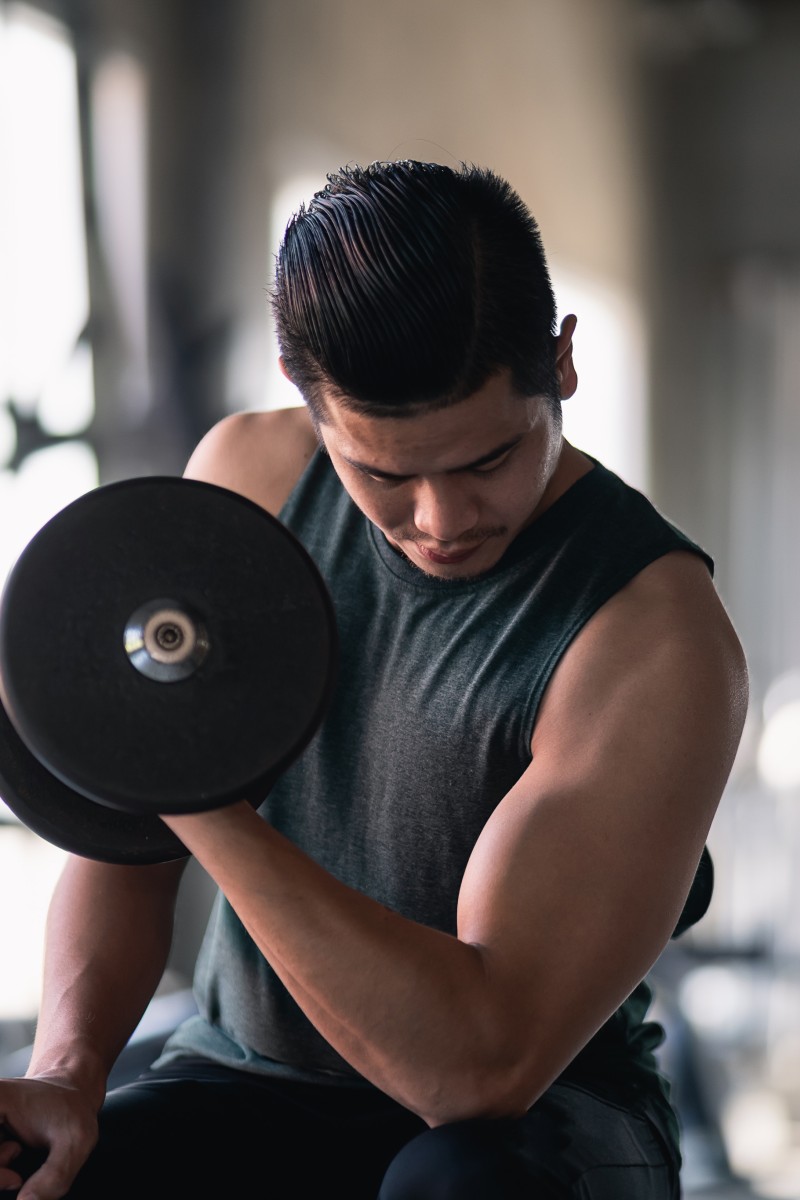
- The quest for the perfect body can lead to muscle dysmorphia, and a personal trainer shares why teens should be wary of exercise trends on social media
- Every week, Talking Points gives you a reading comprehension worksheet with questions and exercises about the story we’ve written
 Bigorexia, also known as the Adonis complex or muscle dysmorphia, is a compulsive obsession with the appearance of one’s body, fear of not having enough muscles, and the irrational need for excessive physical exercise. Photo: Shutterstock
Bigorexia, also known as the Adonis complex or muscle dysmorphia, is a compulsive obsession with the appearance of one’s body, fear of not having enough muscles, and the irrational need for excessive physical exercise. Photo: ShutterstockSome people hardly ever step foot inside a gym, but for others, it’s a second home where they spend long hours aiming for perfectly ripped, chiselled bodies.
While these weightlifting, barbell-pumping enthusiasts may seem fit and healthy, personal trainer Phil Snowden tells Young Post how an obsession with building muscles can lead to a body dysmorphic disorder.
Snowden, who works at UFit, a health and fitness club based in Singapore, has seen a wide range of clients, from everyday gymgoers to professional athletes and Olympians. He has observed a rise in male teens preoccupied with developing a muscular physique.
“These individuals engage in exercises that are mostly focused on bulking up the chest, arms and biceps rather than workouts aimed at overall health and fitness,” he said.
Why TikTok’s latest #bodychecking trends are bad for you
The 37-year-old trainer, who was formerly in the British Army, pointed to social media as one of the main culprits behind this phenomenon.
“This ... evolution of fitness particularly on [Instagram and TikTok] in recent years has become very bad taste in my opinion,” Snowden said.
He explained that influencers and even qualified trainers used heavy filtering and editing on photos and videos on social media. Trying to emulate how they look without knowing the touch-ups that go into their content can fuel insecurities about physical appearance – and can turn it into a disorder.
The quest for the perfect body can lead to bigorexia – a compulsive obsession with the appearance of one’s body, fear of not having enough muscles, and the irrational need for excessive physical exercise.
According to a review of bigorexia published in scientific journal Kontakt, the disorder, also known as the Adonis complex and muscle dysmorphia, is mostly present in men. The compulsive need to stick to an excessive exercise regime can affect a person’s health and social life.
Snowden described experiencing something similar when he was younger.
“I used to be an overweight kid, so for me, it was a massive self-esteem issue. Even though I ended up training three times a day to reduce body fat, I was constantly getting injuries and feeling fatigue throughout the day,” he said. “I don’t want to say I was depressed, but I was feeling down all the time.”
Hong Kong teens say Instagram has a negative impact on their mental health
He added that things took a turn for the better once he started listening to his body.
This is one lesson he has been working to impart to clients – adjusting their fitness regimes based on how they feel rather than simply sticking to a prescribed routine. This includes adding variety to their training and switching between high- and low-intensity exercises.
Snowden also encouraged teens to find joy in exercising rather than seeing it solely as a means to a muscular physique.
“It’s not just about doing pull-ups and working out on weight machines, but rather integrating it holistically into your lifestyle,” he shared. “For instance, I enjoy going for a run while listening to audiobooks. It’s a great chance to relax and get some fresh air.”
Snowden recommended thinking about weight training as a slow, long-term commitment because building muscles is a process of damage and repair.
“Your body has to rebuild lots of muscle fibres, and ideally, you want to keep it in the best condition ... without abusing it,” he said.
If you find yourself experiencing extreme anxiety when thinking about how others perceive your body, or if you are constantly comparing yourself to models with ripped bodies on social media, it is probably a good idea to seek help from a professional who can help you evaluate your fitness goals and insecurities.
“Unless you are a professional athlete, your fitness goal here as a teen should be to achieve overall health and wellness to enhance your quality of life,” Snowden emphasised.
Click here to download a printable worksheet with questions and exercises about this story. Answers are on the second page of the document.
